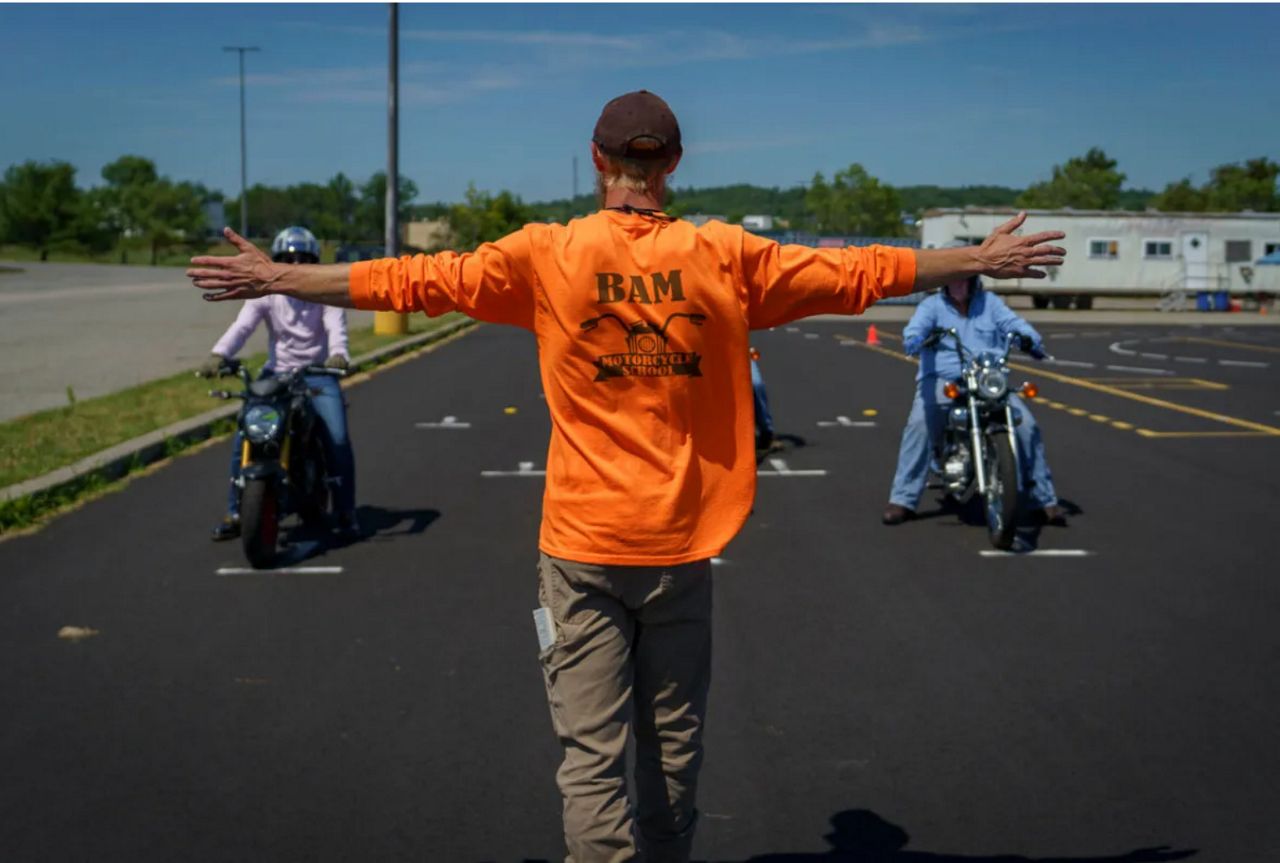A state task force that formed in response to a surge in fatal motorcycle crashes this year might recommend changes to the state driver education curriculum, trimming vegetation at intersections so drivers can more easily spot motorcycle riders and encouraging more riders to take advanced training courses.
The Maine Motorcycle Safety Task Force formed this summer as Maine witnessed a spike in fatal motorcycle crashes. The state has now seen 30 fatal motorcycle crashes since the start of the year, making 2022 only the third time Maine has seen 30 or more motorcycle fatalities, according to state records.
Of the 30 people who have died in motorcycle crashes so far this year, 28 have been operators and two have been passengers, according to Shannon Moss, a spokesperson for the Maine Department of Public Safety.
Maine saw 32 and 34 motorcycle fatalities in 2015 and 1991, respectively, Moss said. More recently, Maine saw 21 fatal motorcycle crashes last year and 27 in 2020.
The spike in fatalities prompted state officials in July to form the special motorcycle safety task force.
The group collects information on each fatal crash to search for common factors, then brainstorms related measures that could protect motorcycle riders in the future, Moss said. The measures the group has discussed haven’t been limited to those directly involving motorcycle riders. The group also is looking at measures targeting automobile drivers that can make motorcycle riders safer.
The task force comprises state employees from the state bureaus of Highway Safety and Motor Vehicles as well as law enforcement and motorcycle rider representatives, according to Chris Ireland, director of license services at the Maine Bureau of Motor Vehicle and the group’s co-chair.
“The idea is to look at some of the bigger, systemic things we could take on as a state and within motorcycle riding communities to address the high number of fatalities we’ve had this year and prevent it from going in the wrong direction in following years,” Ireland said. “Nothing is off the table at this point.”
The group found a lack of motorcycle training and riders not wearing helmets to be common factors in fatal motorcycle crashes, Moss said.
Only nine of the 30 people who have died in motorcycle crashes this year were wearing helmets, according to Moss. Twenty-one of the 28 motorcycle operators who have died this year had a state motorcycle endorsement, and 16 of those who died had some form of valid motorcycle training on record with the Bureau of Motor Vehicles, Moss said.
Though the safety task force hasn’t made any formal decisions or recommendations, Ireland said the group is considering how driver’s ed courses could be improved to increase young drivers’ awareness of motorcycles.
Also in the running is how the state could encourage motorcyclists to take advanced motorcycle training courses.
Ireland said the group is even considering making recommendations for altering signs and vegetation at road intersections so drivers have a clearer view of approaching motorcyclists.
Ireland didn’t know when the task force plans to release formal recommendations, but he stressed the importance of obeying the speed limit, wearing a helmet and not operating under the influence.
“Helmets aren’t mandatory in the state of Maine, but from a fatality prevention perspective, it’s a recognized mitigation,” Ireland said. “The helmet doesn’t prevent the accident, but it may help you survive it.”
Mainers can purchase and register a motorcycle without holding a motorcycle endorsement on their driver’s license, according to Ireland. They must, however, complete a motorcycle safety course to earn an endorsement on their license, but don’t have to wear a helmet when they ride.
Ireland also urged vehicle drivers to “look twice and look thrice” for motorcycles, which are often more difficult to see, when entering an intersection, merging or changing lanes.
“Our brains are coachable, and they learn to look for what we’ve taught them to look for,” Ireland said.




